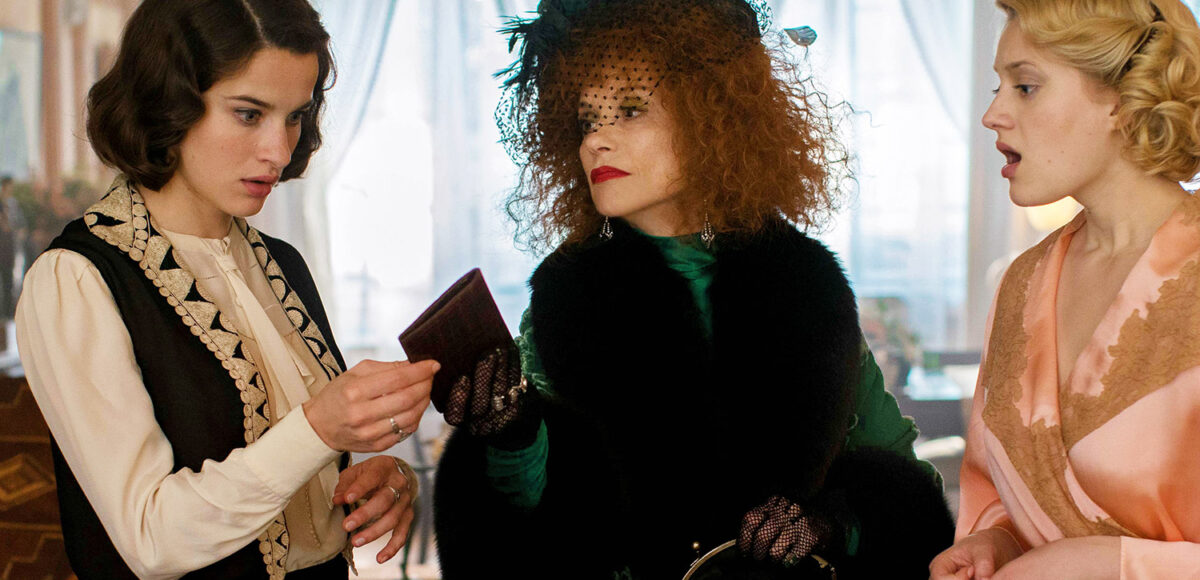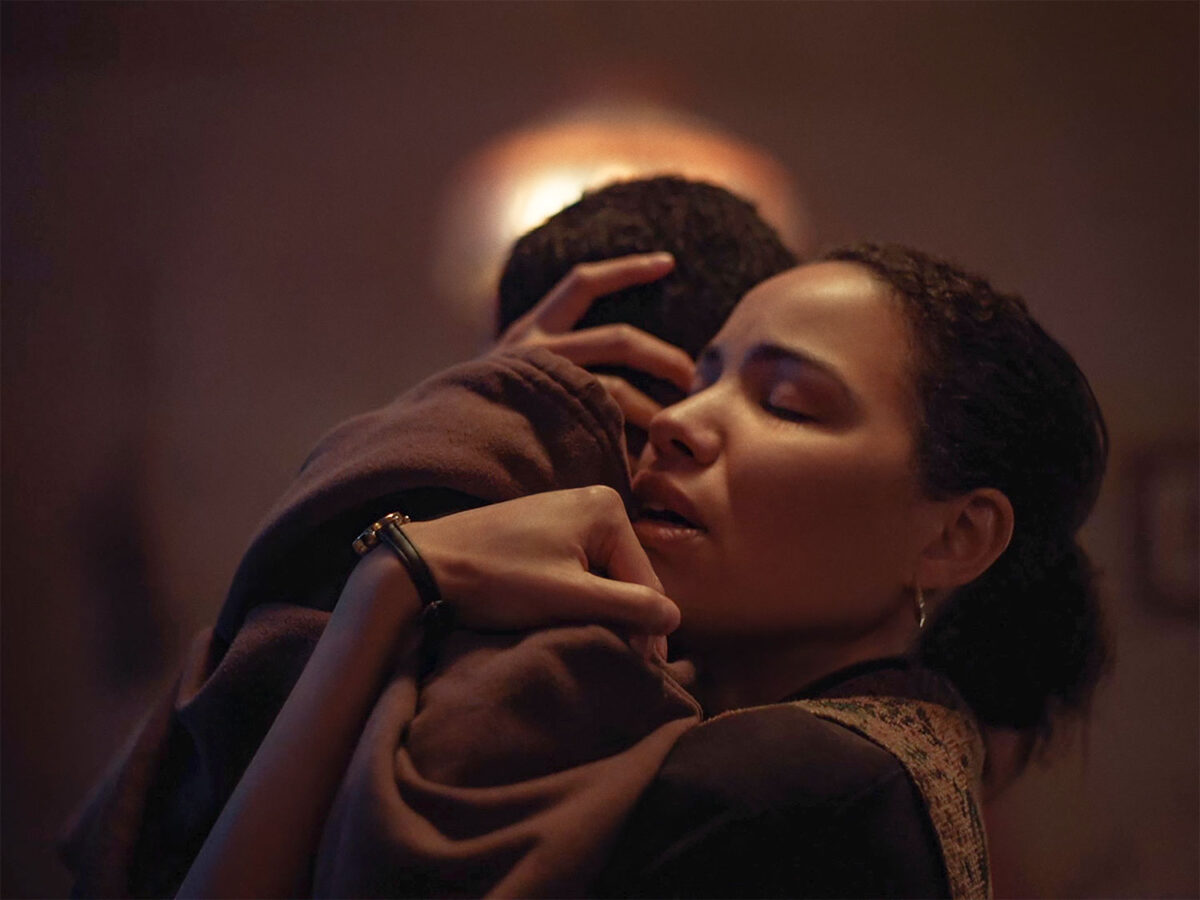We all have reasons why we’ll see a film sight unseen and one of mine is Isabelle Huppert. She makes even mediocre movies (and she’s been in a few) watchable. So what a thrill when she’s in a good one, and a comedy to boot, surrounded by other great actors. She is only one of the reasons to see “The Crime is Mine,” a delight in every way. It is directed by François Ozon, one of the best writers/directors working today and the rare artist who is known for enhancing the careers of many women of a certain age with roles that highlight their strengths and beauty. He resurrected the career of Charlotte Rampling when she reached “a certain age” with a starring role in “Under the Sand” (2000). He continued featuring other actresses who had allegedly passed their “use by date,” most notably in a hilarious comedy called “8 Women’’ (2002) starring Danielle Darrieux (85), Catherine Deneuve (59), Fanny Ardant (53) and the baby of the group, Isabelle Huppert (49). It’s no wonder that actresses clamor to be in his films.
Here, he gives us Paris in the 1930s lovingly displayed at her best. Beautiful young actress Madeleine can’t get a foot in the door. She and her best friend Pauline, a lawyer without a case, share a cold water flat in a marginal neighborhood and are behind on the rent. They have flirted their way out of eviction for the last time, the landlord warns, and they have just a few days to come up with what they owe. Madeleine’s audition with a producer of a hit play may save them yet.
Alas, a very disheveled and upset Madeleine returns to the apartment, hair a disaster, blouse ripped, stockings run, gasping for breath. The producer was a pig. The only way she could have a bit part in his play was if she would sleep with him twice a week at his secret bachelor pad. To escape his clutches, she shoved him into a table and ran out. How will she ever get the rent money, let alone be able to support her slacker boyfriend André? But the horrors continue when the police arrive on their doorstep. The producer is dead and she was the last person on his schedule. Dragged away to jail, she is interviewed by Judge Rabusset who will be in charge of the case. With Pauline at her side, Madeleine tries to explain that she didn’t kill him, or if she did, she didn’t mean to. Rabusset is having none of it and lays out all the possible scenarios and in all of them she’s guilty. Conferring with the innocent Madeleine, her first client, Pauline advises her on a risky course of action in which she will plead self-defense and defend herself to what will be an all-male jury who will, no doubt, be swayed by her superior acting, pitiful story and especially her beauty.
Long story short, and this is really not much of a spoiler, Madeleine gets off and becomes a cause célébre throughout Paris. Her acting career takes off and she is cast in the dead producer’s play after all, not as a bit player but as the lead. Everywhere she goes, she’s showered with attention. Winning the case has also jumpstarted Pauline’s career. Alas, the collateral damage is her affair with André because now his rich, industrialist father will never agree to their union. Actresses are bad enough but Madeleine is a confessed killer. Still, life is pretty good at this point until…Odette Chaumette arrives on the scene. Odette was a major star of stage and screen during the silent era but has aged out of everything except her ego. She is on the cusp of throwing a very large monkey wrench into the pair’s newly acquired fame and fortune.
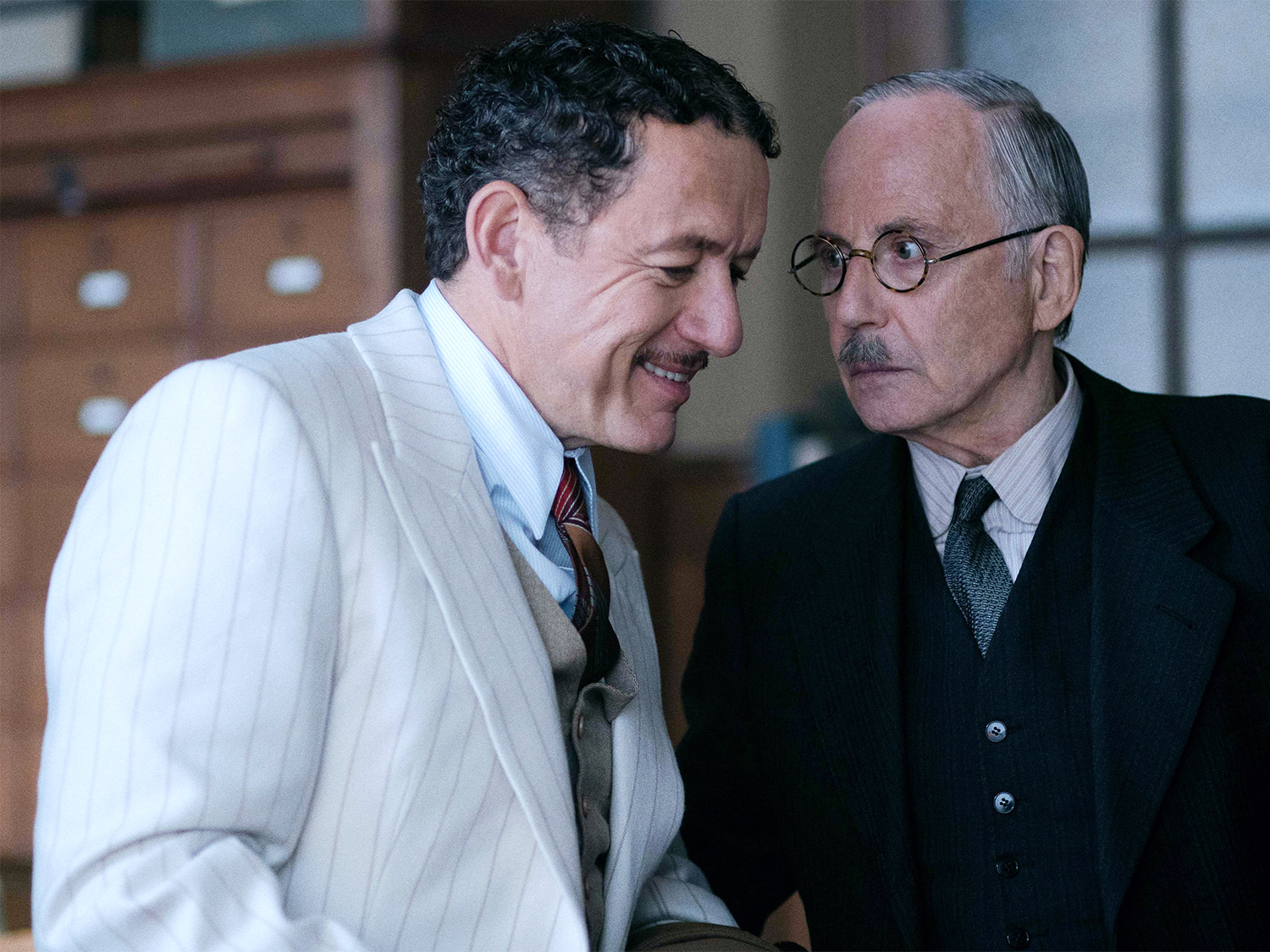
Photos courtesy of Music Box Films
Ozon, writing with Philippe Piazzo, adapted the 1934 play by Georges Berr and Louis Verneuill called “Mon Crime.” This is Ozon’s sly tribute to “#MeToo.” His women are smart, cagey and fascinating. Most of the men are willing pawns, some more so than others. He has populated his screen with a panoply of living legends intermingled with some of the stars of tomorrow, all of whom are able to pull off the difficult timing of this farce. Doors open, doors slam shut, sight gags are tossed freely, identities are mistaken, disaster is always imminent, conversations are misinterpreted with malapropisms thrown in at will. The dialogue is clever and is always time-period perfect but interjected with feminist sensibilities that blend in perfectly. There are no real villains in the piece, but those who wish ill of our two young leading ladies will rue the day.
Madeleine and Pauline, our young heroines, are played respectively by Nadia Tereszkiewicz and Rebecca Marder, a member of the Comédie Française. Nadia is a terrific foil for all the men trying to take advantage of her; Rebecca, with her sly delivery, keeps things moving for the two of them. Édouard Sulpice plays André Bonnard, the slacker boyfriend. Although a relatively minor role, he really sells his unmotivated rich kid, unwilling to do anything for a dime other than live off the meager earnings of his girlfriend. That he is willing to marry someone else for money so that he can “keep” Madeleine is not an irony that is lost on her.
Fabrice Luchini, Judge Rabusset, is a beloved and lauded television, film and theater actor little known on this side of the world but a major star in Europe. His timing is pitch perfect and he really delivers as the pretentious, know-it-all but befuddled judge who trips over everything including his tongue and cheek. Dany Boon as the wealthy Fernand Palmarède is the good friend, bailing the two girls out of trouble over and over and never asking for anything in return. Boon, one of France’s leading comedy actors and writers, cashes in on his screen persona as a nice guy, sometimes misunderstood, but always forgiving.
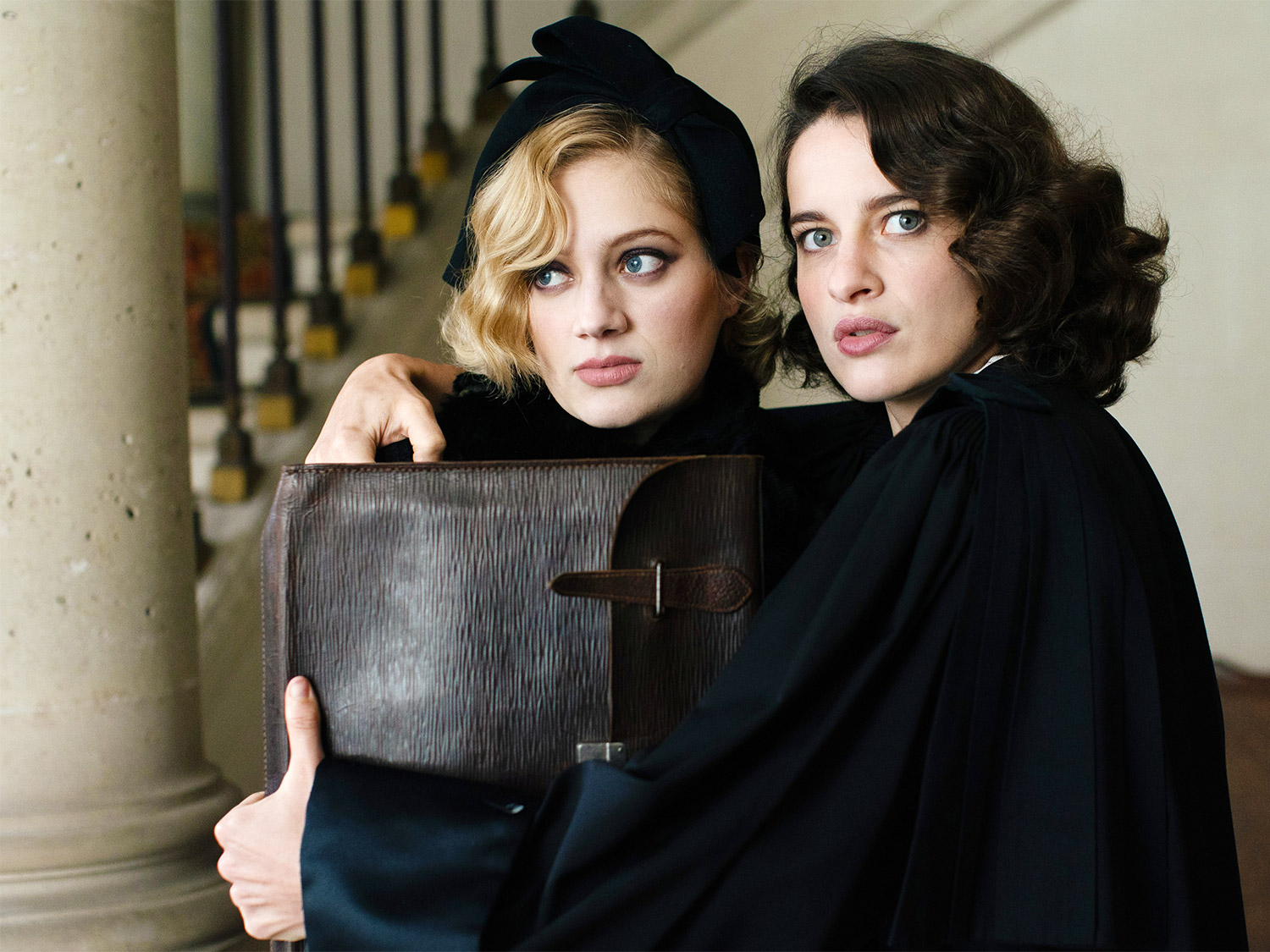
André Dussolier, Mr. Bonnard, the rich industrialist, has been a star since the ‘70s, going back to “And Now My Love” directed by Claude Lelouch. He has segued brilliantly from young romantic leads and feckless youths to the fathers of the romantic leads and feckless youths. Villain or hero, he adds just the right amount of empathy so that you never completely hate him. Whether in the lead or in support, he steals every scene as we watch his tough exterior gradually give way both appropriately and inappropriately to the lovely Madeleine.
But the coup de grace in Ozon’s casting is Isabelle Huppert. She is a force of nature, generous to those with whom she is working but dominating every scene, and rightfully so. More known for her dramatic roles, her comic timing is impeccable (watch her episode in “Call My Agent” for a preview). As is true with everyone in this movie, the comedy is played straight, with no knowing glance to the audience, no broad strokes. She cuts through her scenes with a scalpel. From the moment she enters, she’s front and center even when not on screen. The authority of her character changes all the dynamics previously in play. And of course, there’s her timing and withering glances. Part of what makes her great is the humanity that lurks below the surface. Her Odette is hilarious but also human. She is Norma Desmond in “Sunset Boulevard,” humanely played for laughs, one short step away from the madness.
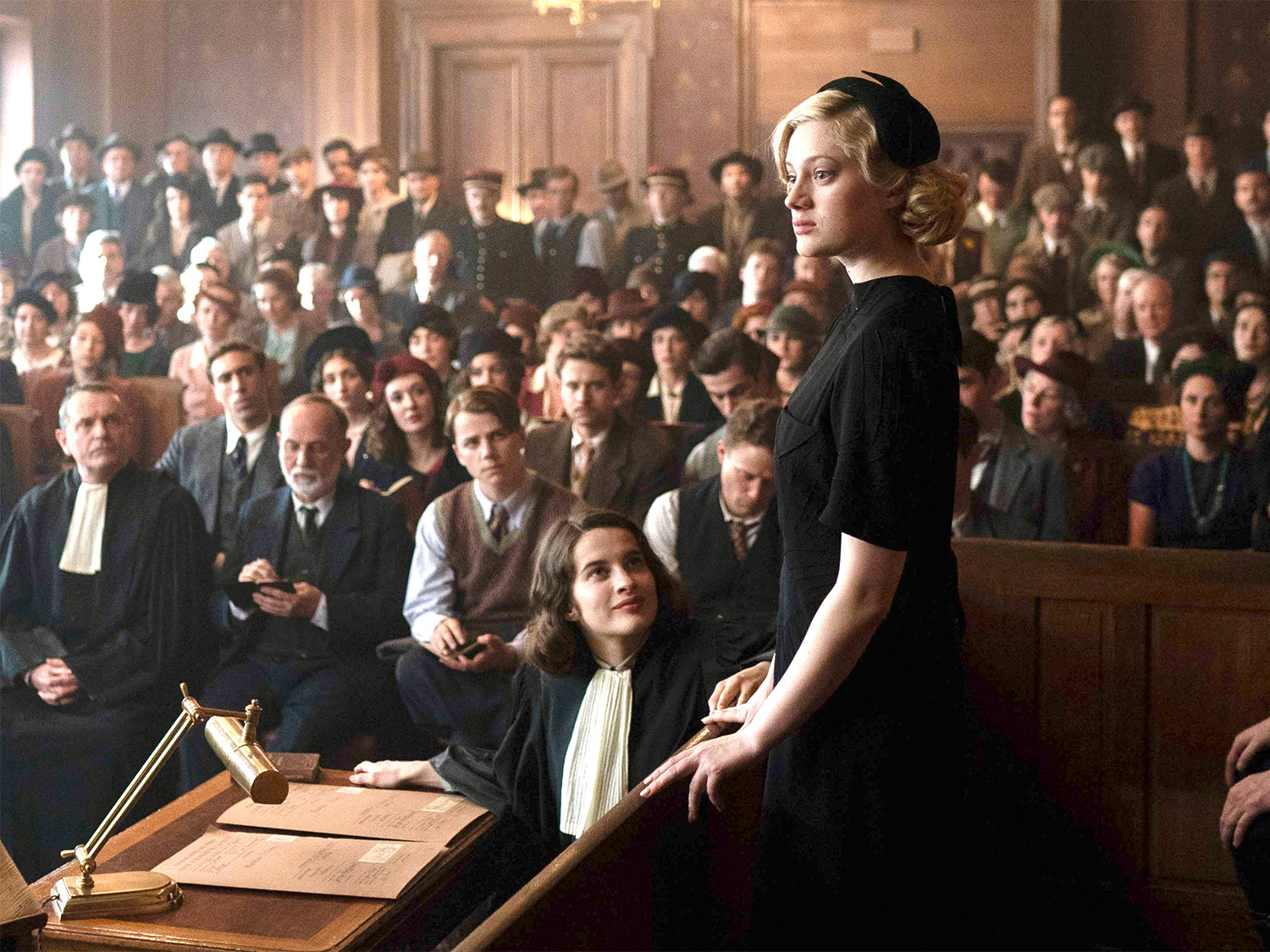
I had so much fun watching this film (twice) for the Paris locations as filmed by Manu Dacosse; the period-perfect costumes by Pascaline Chavanne; the production design by Jean Rabasse that captured the Art Deco style of the era; the actors I recognized, and even those that I didn’t; and the smart dialogue and situations that flew off the screen. The only criticism I have is that the text in the end credits, explaining what happened to the characters, wasn’t translated into English. Those tongue-in-cheek captions were an absolute highlight.
In French with English subtitles.
Now playing at the Laemmle Royal.
Neely Swanson spent most of her professional career in the television industry, almost all of it working for David E. Kelley. In her last full-time position as Executive Vice President of Development, she reviewed writer submissions and targeted content for adaptation. As she has often said, she did book reports for a living. For several years she was a freelance writer for “Written By,” the magazine of the WGA West, and was adjunct faculty at USC in the writing division of the School of Cinematic Arts. Neely has been writing film and television reviews for the “Easy Reader” for more than 10 years. Her past reviews can be read on Rotten Tomatoes where she is a tomato-approved critic.



